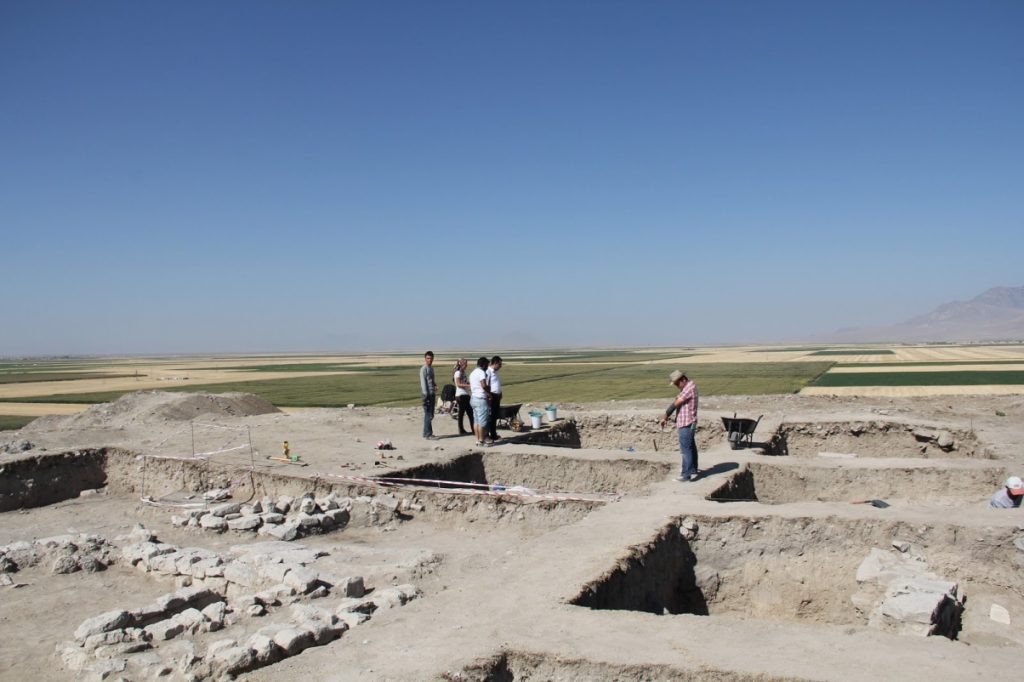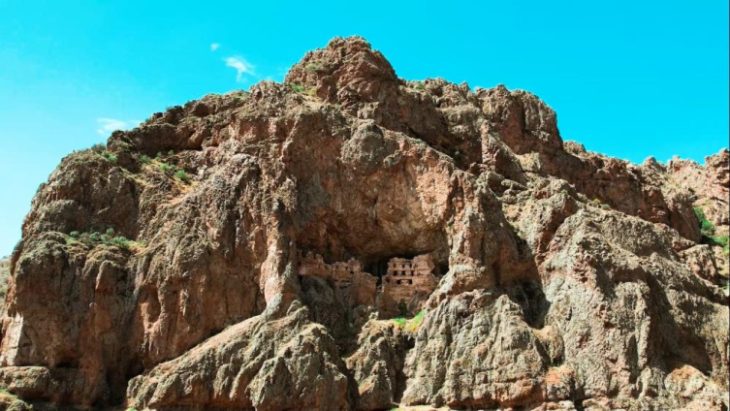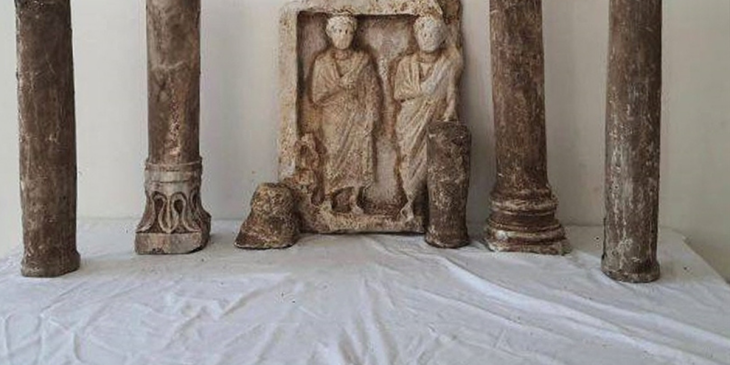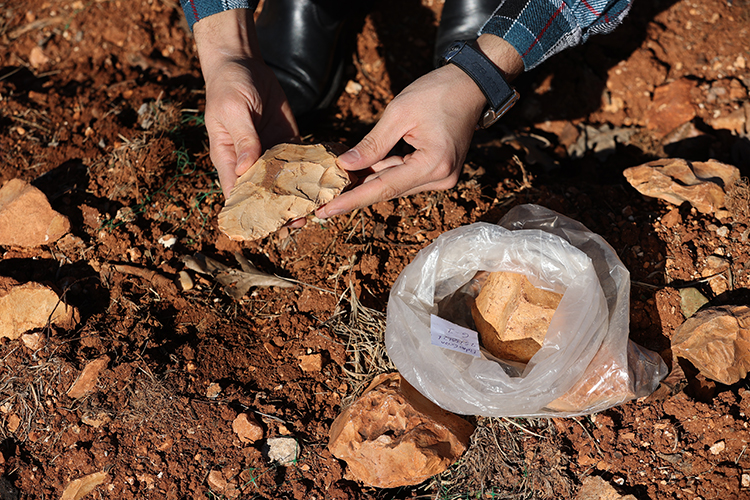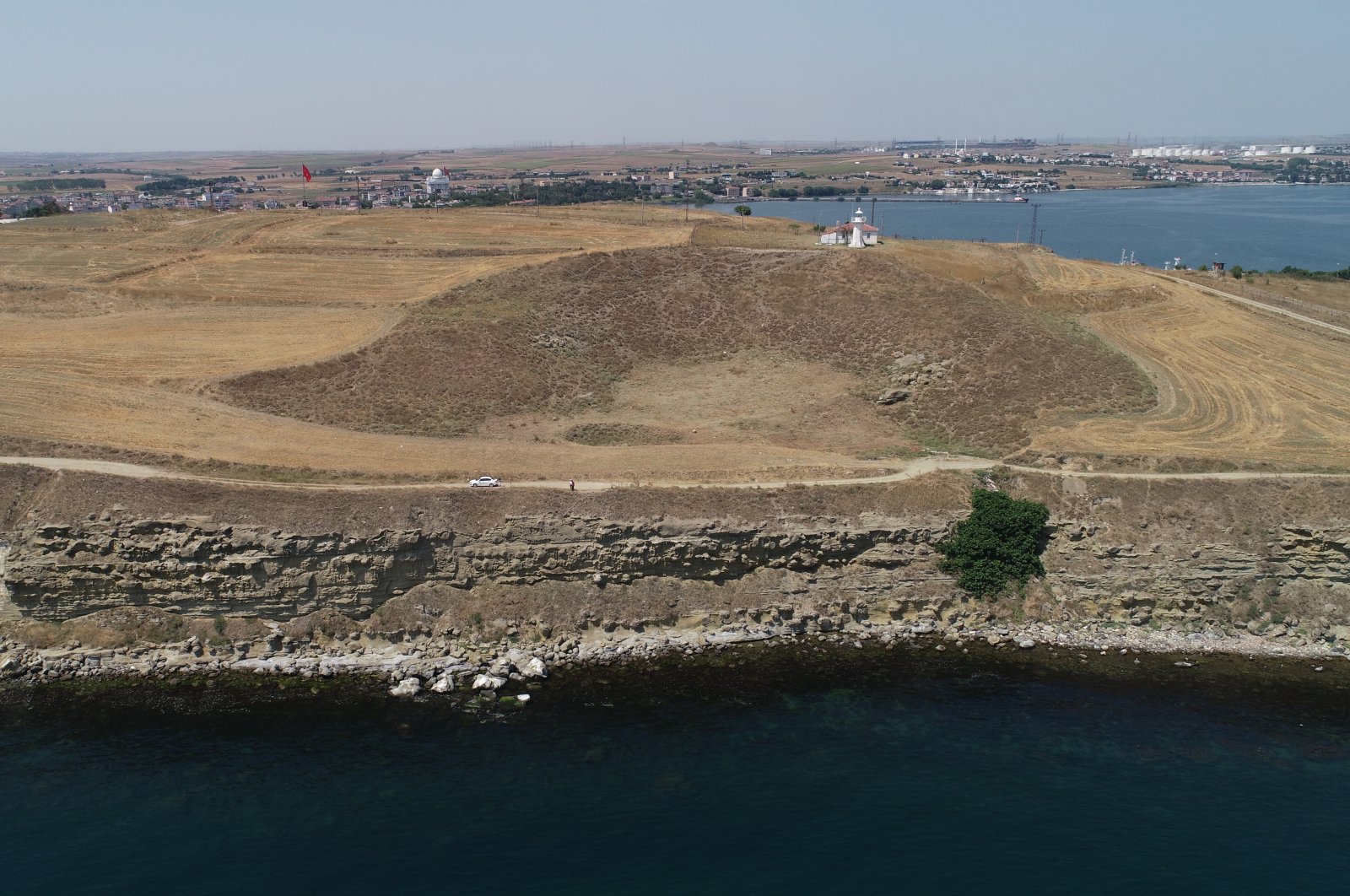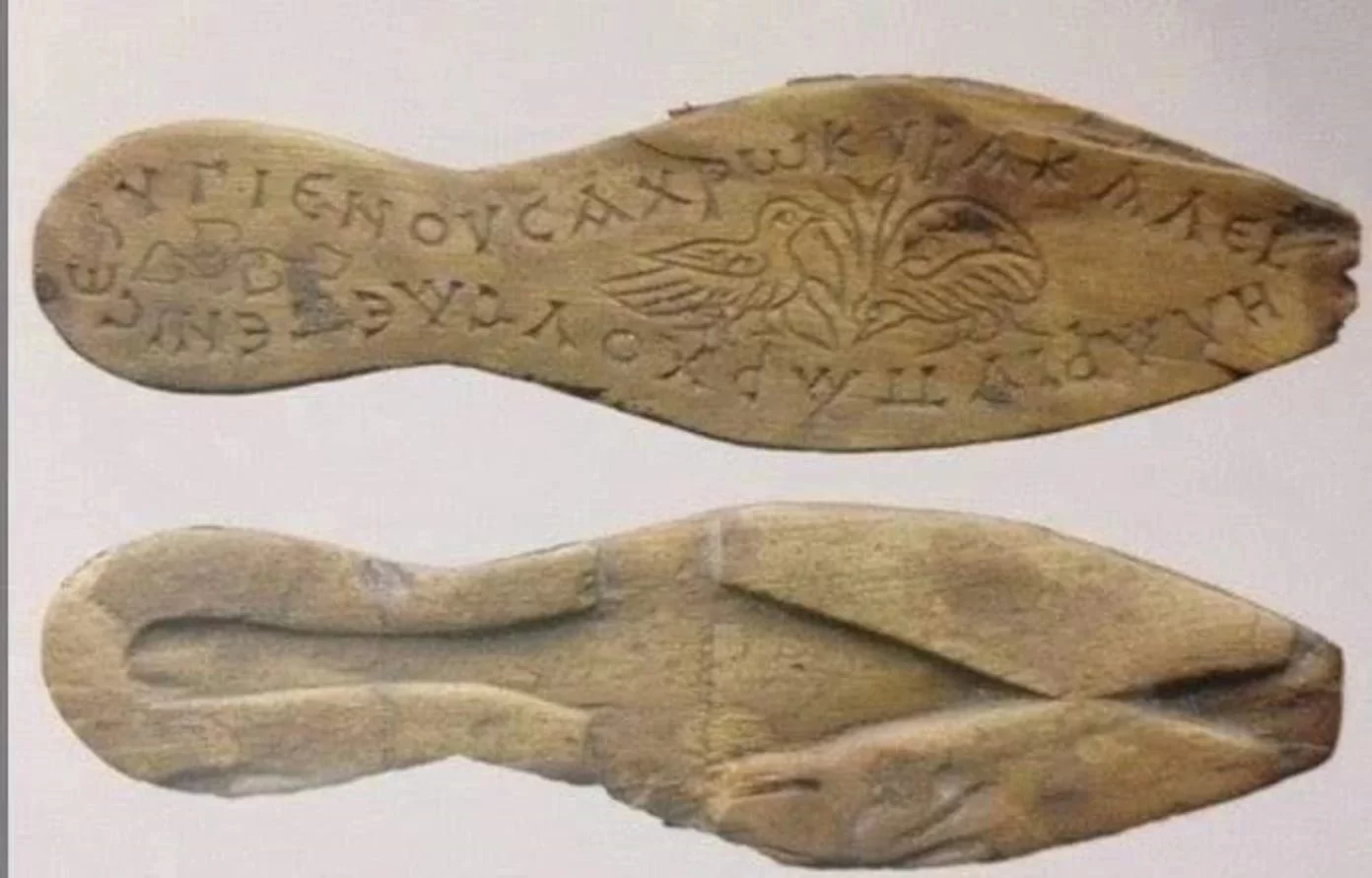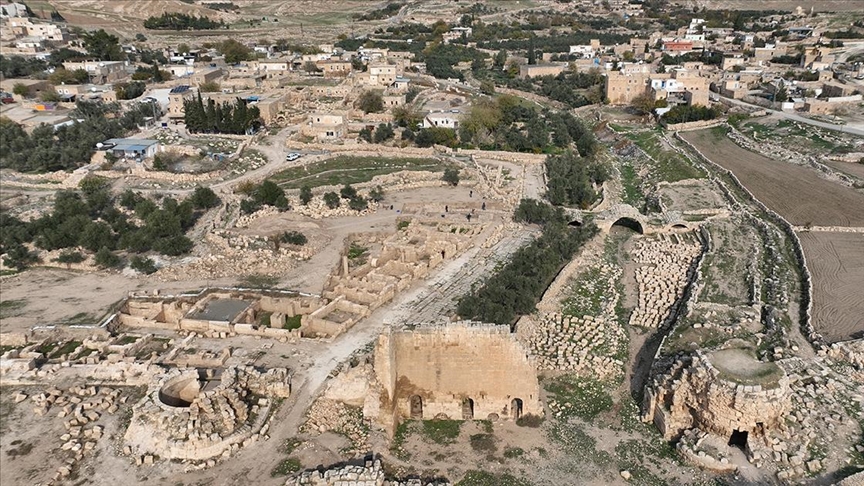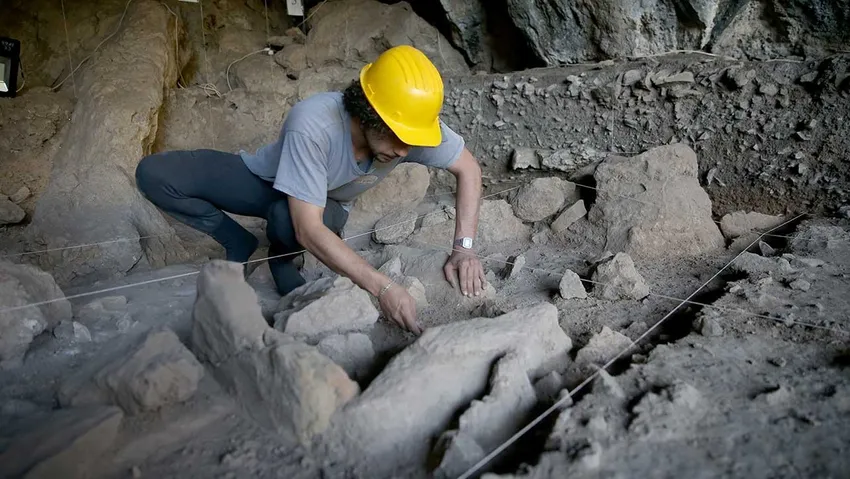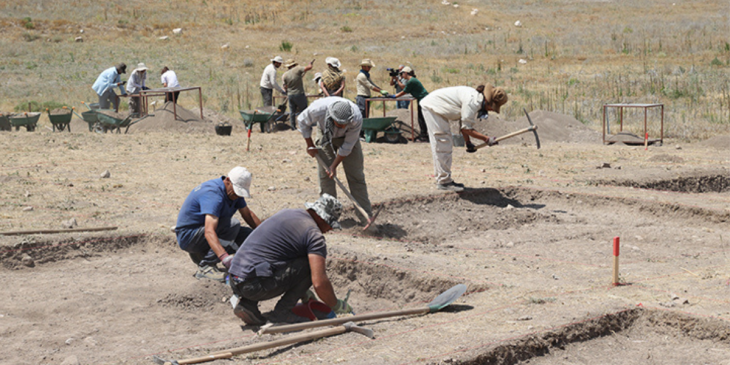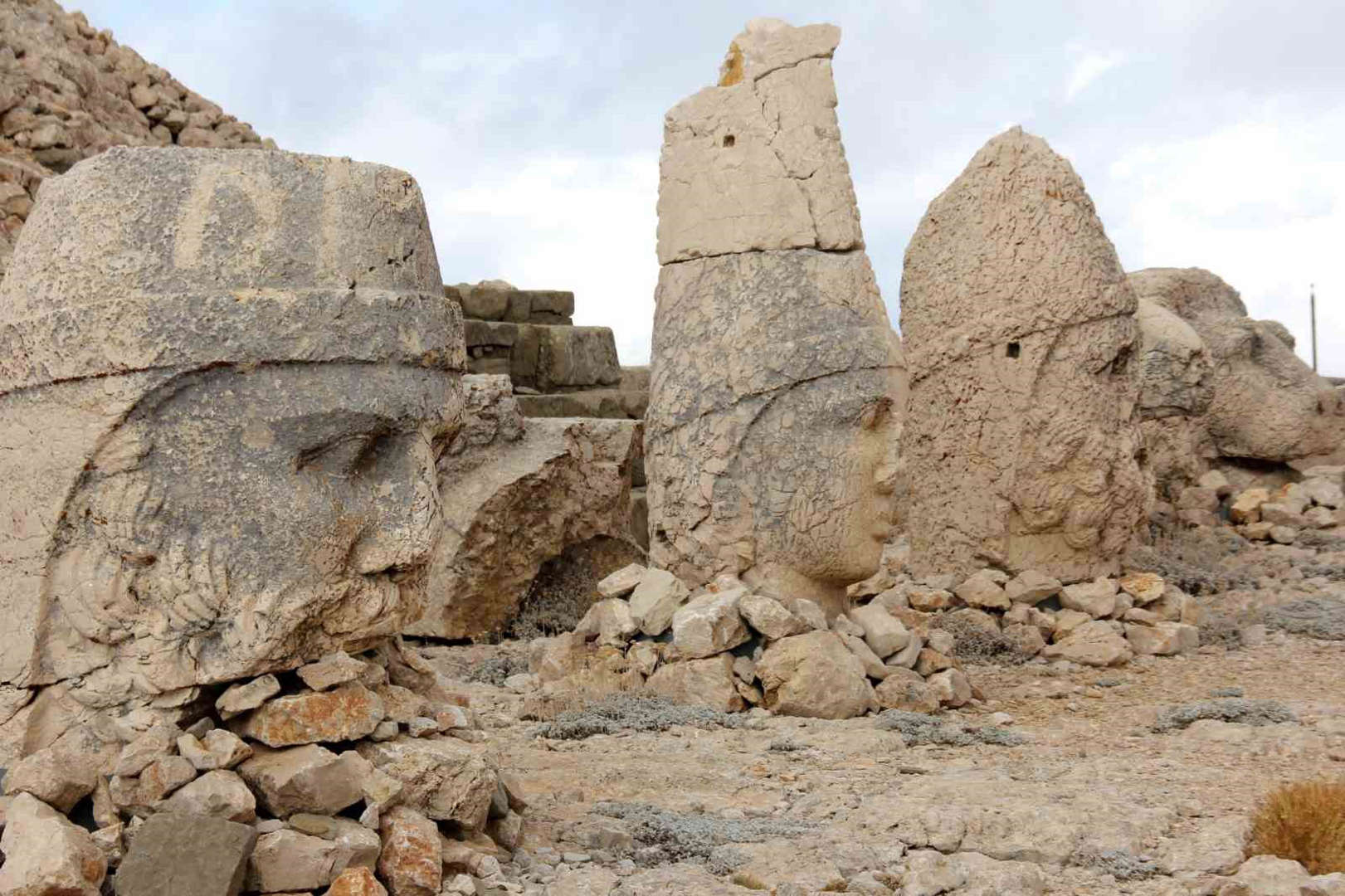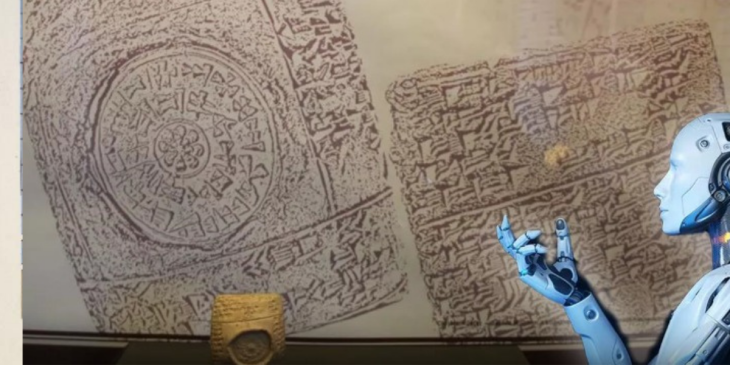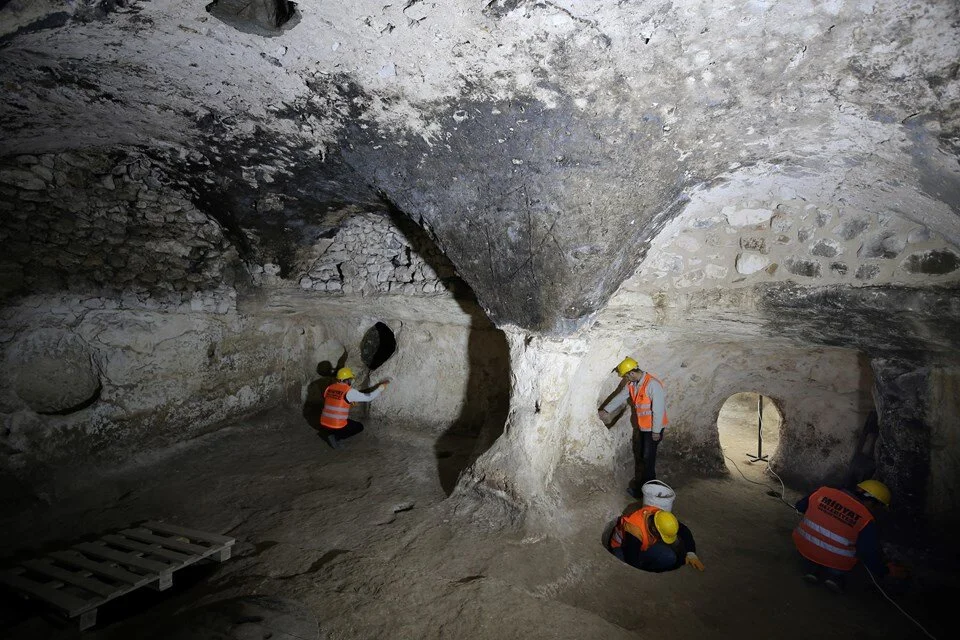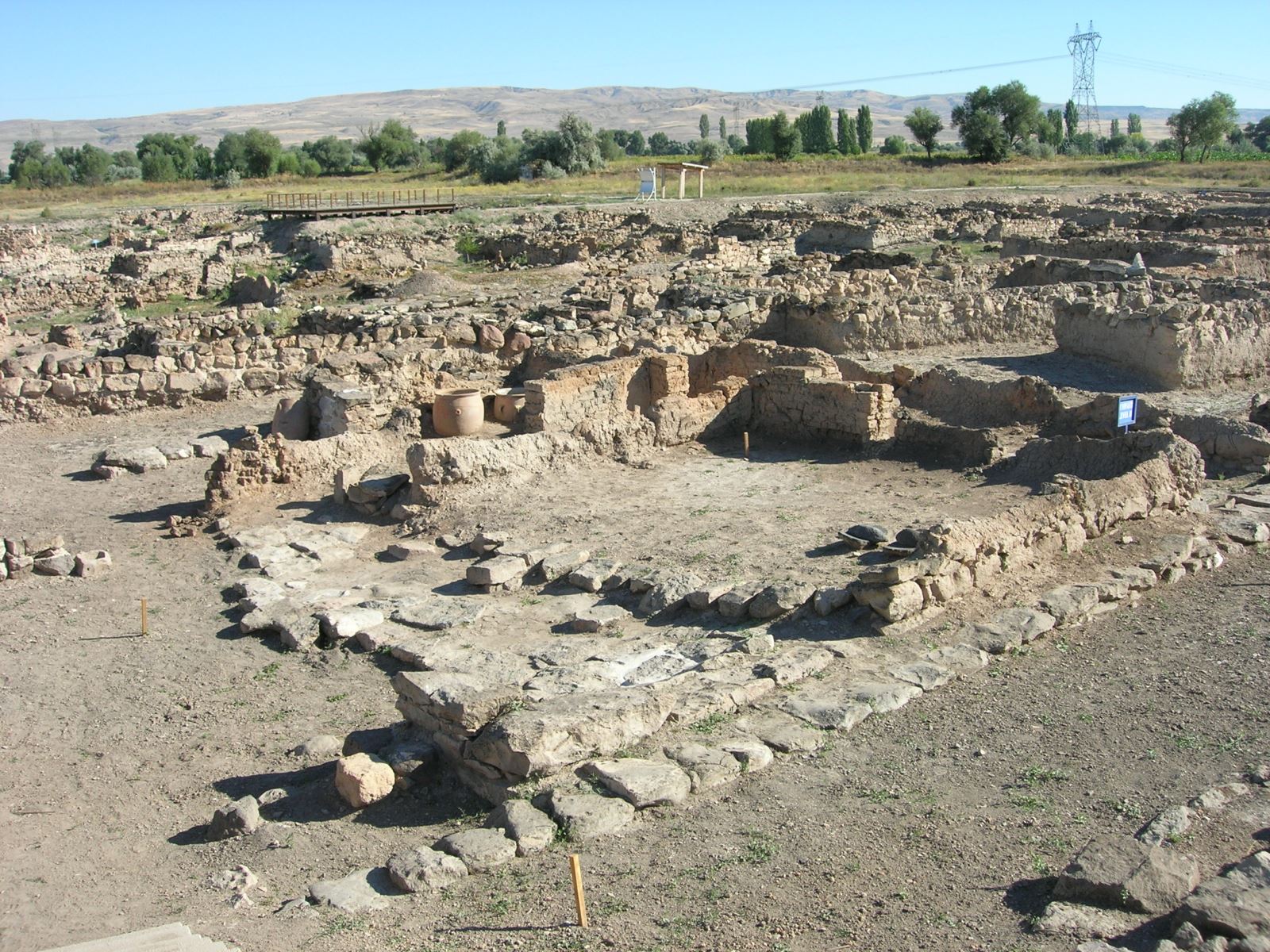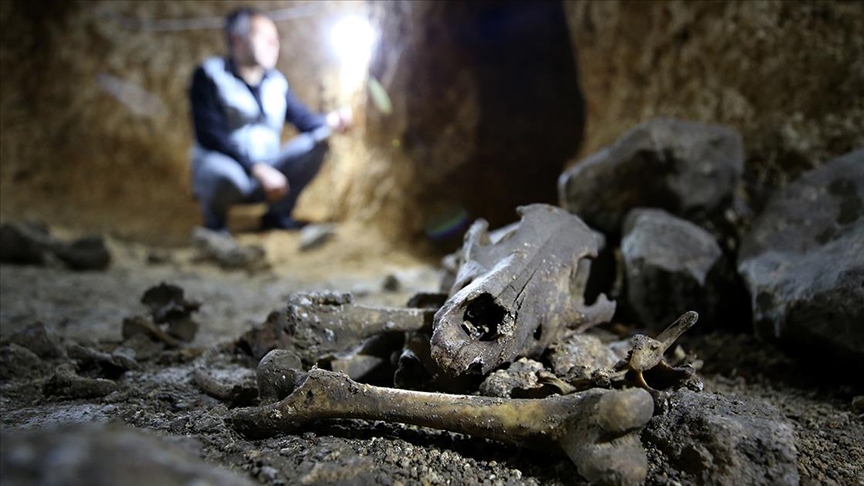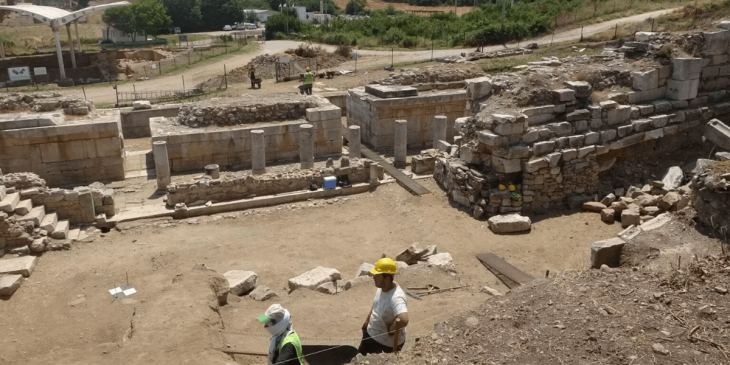The ancient city of Derbe, which was a center of the bishopric in the early years of Christianity and mentioned in the Bible, cannot continue its excavation due to insufficient funding since the commencement of the excavation work in 2013.
Surface surveys conducted at Derbe Mound, believed to be the ancient city of Derbe located 3 km north of Ekinözü Village in Karaman, revealed pottery fragments dating back to the Bronze Age, Iron Age, Hellenistic, Roman, and Byzantine periods.
The mound, also known as ‘Kerti,’ yielded a small number of ceramic pieces and other remnants indicating that the site could date back to the Neolithic Period.
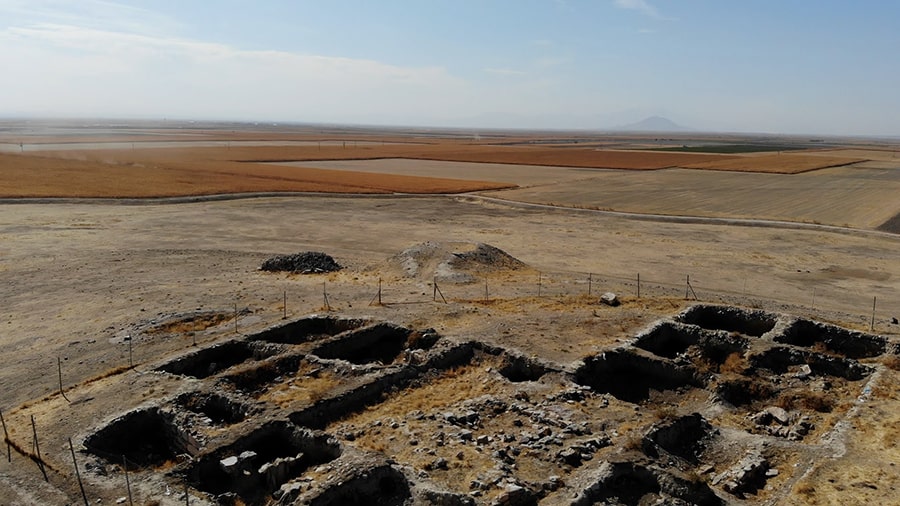
Covering an area of 250×150 meters, the mound stands approximately 30 meters in height.
Derbe, known as one of the significant pilgrimage sites for Christianity, holds importance due to the visits of Saint Paul and Barnabas to the region in the years AD 47, 50, and 53, as well as the resting place of ‘Michael,’ considered a religious leader after Jesus.
The strongest evidence suggesting that the Derbe mentioned in the Bible is located in Ekinözü village comes from two inscriptions, one from Derbe Mound and the other from the Sudurağı town in the late 1950s. These inscriptions, which include the name Derbe, strengthen the claims about Derbe being in Karaman.
One of the inscriptions is exhibited in the Konya Archaeology Museum, and the other is displayed in the Karaman Archaeology Museum.
The sacred ancient city of Derbe awaits funding support.
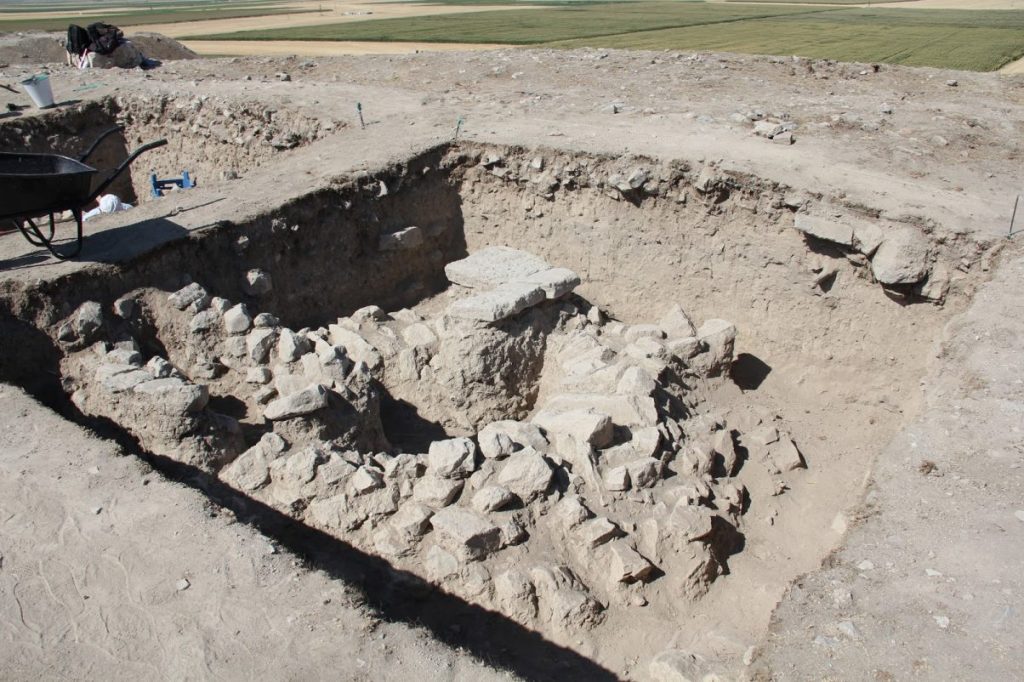
Excavations began in 2013 under the support of the Ministry of Culture and Tourism and conducted by Selçuk University. During the excavations, a religious structure was discovered, and part of the northern and eastern apses of the building was revealed.
Ekinözü Village Headman Asım Arpınar expressed to arkeonews that due to the insufficiency of funding, the excavation works, which commenced in 2013, couldn’t be continued.
“Tourists come here, experiencing emotional moments, covering their heads and praying with tears. Some claim they have fulfilled a pilgrimage. This is such an important place. Christians hold this place in high regard. Unfortunately, the excavations that started in 2013 are not continuing due to a lack of funds.”
Arpınar emphasized the necessity of increased security measures for the archaeological site, which is periodically checked by the gendarmerie. He stated, “If Derbe continues to be excavated and developed into an open site for visits, it will significantly contribute to the promotion of our village, our city of Karaman, and our country.”

